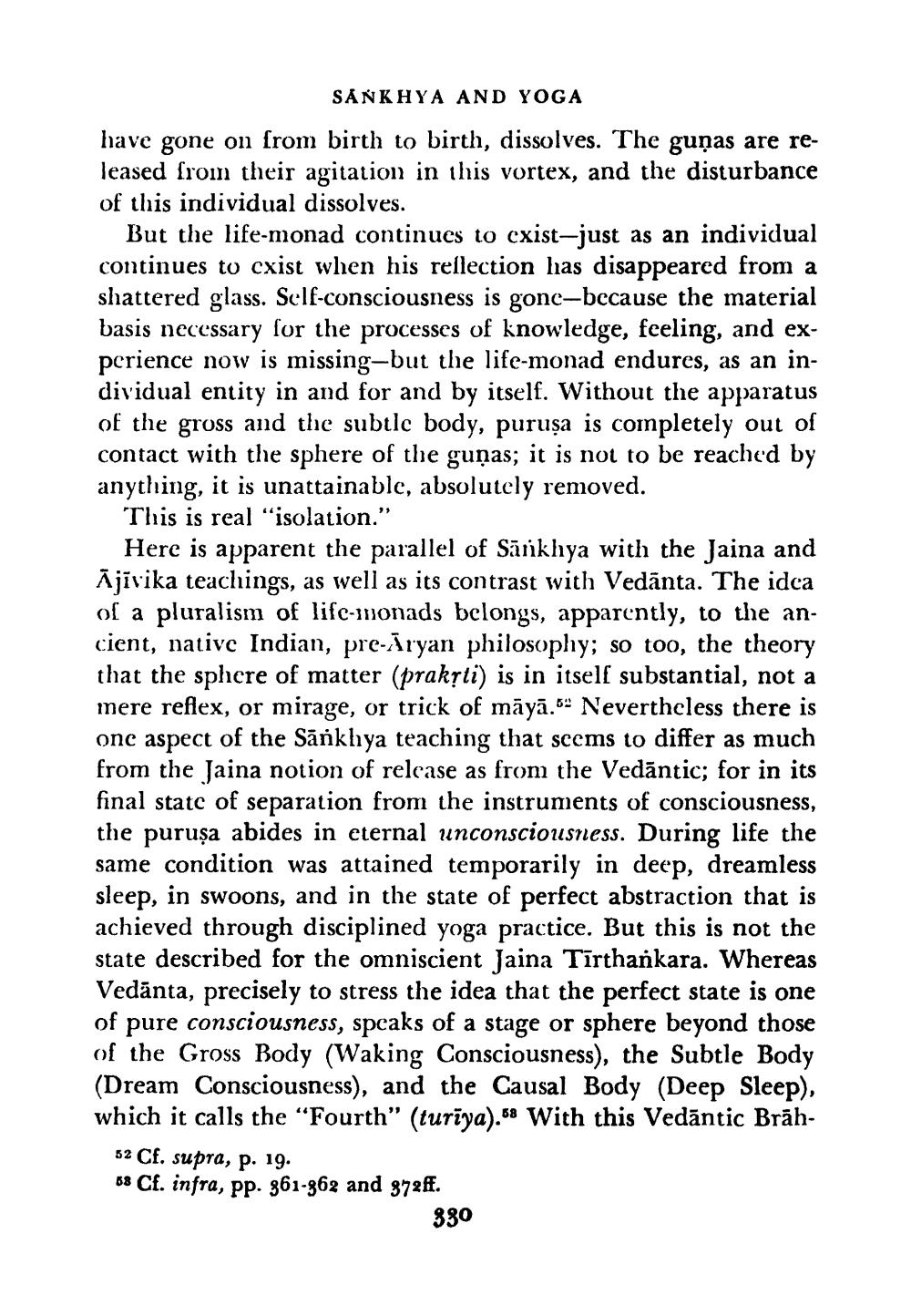________________
SANKHYA AND YOGA
have gone on from birth to birth, dissolves. The guņas are released from their agitation in this vortex, and the disturbance of this individual dissolves.
But the life-monad continues to exist-just as an individual continues to exist when his reflection has disappeared from a shattered glass. Self-consciousness is gone-because the material basis necessary for the processes of knowledge, feeling, and experience now is missing-but the life-monad endures, as an individual entity in and for and by itself. Without the apparatus of the gross and the subtle body, purusa is completely out of contact with the sphere of the guņas; it is not to be reached by anything, it is unattainable, absolutely removed.
This is real "isolation."
Here is apparent the parallel of Sankhya with the Jaina and Ajivika teachings, as well as its contrast with Vedanta. The idea of a pluralism of life-monads belongs, apparently, to the ancient, native Indian, pre-Aryan philosophy; so too, the theory that the sphere of matter (prakṛti) is in itself substantial, not a mere reflex, or mirage, or trick of maya. Nevertheless there is one aspect of the Sankhya teaching that seems to differ as much from the Jaina notion of release as from the Vedāntic; for in its final state of separation from the instruments of consciousness, the puruşa abides in eternal unconsciousness. During life the same condition was attained temporarily in deep, dreamless sleep, in swoons, and in the state of perfect abstraction that is achieved through disciplined yoga practice. But this is not the state described for the omniscient Jaina Tīrthankara. Whereas Vedanta, precisely to stress the idea that the perfect state is one of pure consciousness, speaks of a stage or sphere beyond those of the Gross Body (Waking Consciousness), the Subtle Body (Dream Consciousness), and the Causal Body (Deep Sleep), which it calls the "Fourth" (turiya). With this Vedantic Brāh
52 Cf. supra, p. 19.
58 Cf. infra, pp. 361-362 and 372ff.
330




